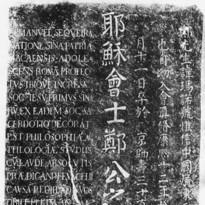As China opens up and people's incomes rise, studying in Europe and the US is nothing new. When it comes to studying in the West, you will surely think of the pioneer Yung Wing. But little known is that before him, there was a Chinese who went to the West to study, and became the "outstanding student of China".
That man is Zheng Ma’nuo or Emmanuel de Sequeira. He was born in Macao, China, in 1633 (some say 1635). Macao was a residence of Portugal (Macau really became a colony during the reign of Emperor Guangxu of the Qing Dynasty), and it was an important stronghold for the communication between China and the West.
Growing up in the background of the “eastward spread of Western Culture”, Zheng had a vision that many Chinese people did not have at that time. A Belgian Jesuit, whose Chinese name was Lu De, known as the "apostle of Annan", became his mentor and friend, from whom Zheng acquired western scientific and cultural knowledge and expanded his horizon.
Martino Martini, an Italian missionary and Sinologist, initiated the Study Abroad Movement, hoping that there would be Chinese people willing to study in Europe, so as to propel the cause of Catholicism in China and promote the cultural exchanges between China and the West. Within such a background, Zheng went to Europe on Lu De's recommendation and became one of the earliest Chinese to study in the West.
In 1645, Lu De set sail for Europe with Zheng who was only 12 years old, from Macau.
They were detained by the Dutch in what is now Indonesia for three months and nearly imprisoned in the Ottoman Empire after being mistaken for Tatars. By the time Zheng got to Rome, it was 1650.
Zheng enrolled at the Jesuit College of St. Andrew's, where he spent 22 months completing a course of study that would take European students four years. Westerners were amazed and admired this high-achieving student from China.
In 1653, he joined the Society of Jesus and transferred to the Roman public school, where he studied rhetoric, logic, physical chemistry, music, and Greek. At that time, the education of Britain and the United States had not yet risen, and Italy was an important educational base in Europe. What Zheng was exposed to at that time could be considered as top education in the world.
After graduating with honors, Zheng was left to teach in Rome, where he was responsible for Latin, Greek grammar and literature. That was the first time a Chinese had taught Greek literature at a prestigious Western institution.
In 1660, Zheng became a priest. He returned to China in 1666. In 1668, he arrived in Macao and worked at St. Paul's College. Before long, Emperor Kangxi eradicated the Aobai Group, and Jesuits such as Ferdinand Verbiest were once again placed in important positions. After the dispute between Chinese and Western calendars, Emperor Kangxi became interested in western science and technology. When he about heard Zheng Ma’nuo, a Chinese in Macao who practiced both Chinese and Western education, he felt very happy and hoped to meet him and even give him an important position.
But just as Zheng was about to start a new life, he fell seriously ill and died in Beijing on May 26, 1673. His untimely death was a great loss in the history of cultural exchange between China and the West.
(The article is originally published by Gospel Times.)
- Translated by Sophia Chen












